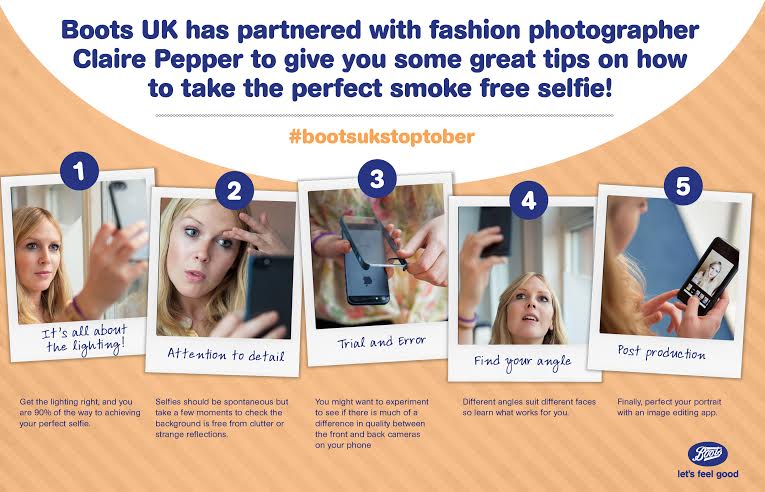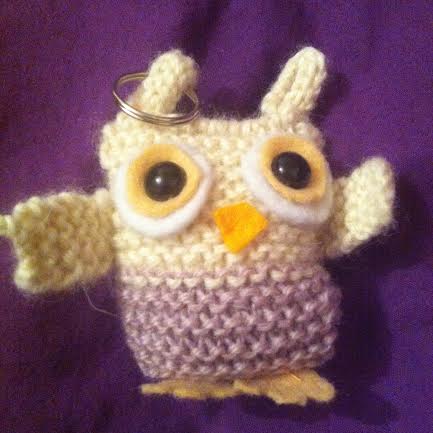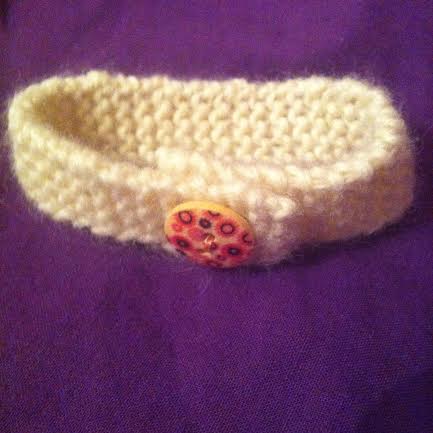Nexus PR have wonderful people there, so when I got notification to go one of their events, I was only too happy. I met Nicky, Emma and Isla at The Balthazar, 4-5 Russell Street, which is a beautiful restaurant, with a naturally beautiful venue room. On entering the upstairs venue room there was an amazing piece of technology, which did an instant scan of your retina and could do a 3D image of your retina and show exactly where, if any, issue involving the retina is! To say it quick would be an understatement and it was well used over the course of the afternoon.
There was a genuine point to having the eye testing equipment, which was not the solo piece of medical advice there, as they had blood pressure testing too! Things attributed to Diabetes, but either overlooked, or ignored by the person with it! Simply health Advisory Research Panel (ShARP) were the company supporting the event and Speaking on behalf of ShARP was the exceedingly talented Dr Gill Jenkins. Who is a practising GP (in Bristol) with special interests in lifestyle health, in particular around obesity, smoking, diabetes, heart disease, lipid management and joint health. Dr Jenkins has a breadth of medical experience since qualifying in 1981, including psychiatry, cardiology, rheumatology and emergency medicine. Her skills are not just in medicine, but whilst her Pilot’s license wasn’t needed in the event, it just goes to show how remarkable she is. After Dr Jenkins, was Dr Ralph Abraham. Dr Abraham specialises in diabetes and Endocrinology; lipid disorders; heart disease prevention. Dr Abraham Trained at Kings College Hospital, St Mary’s Hospital and St Bartholomew’s Hospital as an academic physician turning to full time private practice in 1984. Founded London Medical in 1991.
Rounding things up was Francesca Marchetti. Francesca is a self-employed optometrist working in the West Midlands/Warwickshire area, for both multiple and independent practices. She has previously worked as a part time lecturer/clinical demonstrator at Aston University. Francesca works at the “Midland Eye Institute” in their refraction clinics. She has recently been appointed secretary to the Warwickshire LOC (Leaders in Oncology Care) and is an AOP (Association of Optometrists) Councillor for the Midlands. Dr Jenkins started the proceedings by listing the reason behind Diabetes Mellitus. Poor sugar control can lead to:
- Higher risk of heart disease.
- Peripheral vascular disease.
- Stroke.
- Kidney damage.
- Erectile issues
- Nerve damage.
I think that the penultimate reason alone is a reason for males to make sure their blood sugar levels are kept in check! The stats may bore the general public, but they are a correlation of information compiled to show how far and how long this disease has been going! Mitigating factors can contribute to diabetes, such as high blood pressure, obesity, age, reduction in activity levels and unsurprisingly denial. Dr Jenkins said that the number of pre-diabetes has tripled since 2003, which is shocking by any means! If you had millions of pounds (sterling) and it tripled in 10 years, I am sure that you would not be upset. However, that figure is attributed to the number of people. The strange thing is that people are not really educated about diabetes! We all either know someone, or have a family member with it, but yet people are not bothered about such a debilitating disease. They are not in the knowledge of how they can lose their sight or limbs down to diabetes and it is often too late when they are in a situation that threatens to do just that! Bariatric (weight loss) surgery has shown to reverse the condition in 86% of people with Type 2 diabetes.
This proves that sufficient diet can also do this, however, many people with this condition are not motivated enough to change their diet sufficiently. The NHS spend £13.8 billion per annum treating people with diabetes. Believe it, or not, that figure is conservative! That doesn’t take into account complications, or other treatments extenuating from this. Dr Jenkins also explained that whilst some young people get Type 1 diabetes, it is usually virally activated and out of the total amount of people that have diabetes, about 85%-95% are type 2! I suppose that was as good a point as any to make way for Dr Abraham to speak, as trying to prepare yourself for more frightening stats is not easy! He started by saying, “If you have pre-diabetes it’s silent. There are no symptoms and a shocking number of people are in this position and are sleep walking towards serious health problems. It is particularly important to be aware of your risk of developing Type 2 diabetes, especially if you’re overweight, or have a family history of diabetes.” ShARP did a series of surveys and found that 53% of adults questioned had convinced themselves they were at no risk of developing Type 2 diabetes. 49% were displaying potential signs of diabetes. And the amazing figures kept coming! 76% with potential diabetes had not mentioned it to their doctor. 38% believed their symptoms were not serious. 18% disliked seeing their GP and 14% turned to the internet for advice over their GP… Exercise is one of the easiest way to attack pre-diabetes.
Almost 21% of adult never, or rarely, work up a sweat working out. Diet also works well, so that in tandem with exercise is a great combination. A Mediterranean diet, high in fruit, vegetables, monounsaturated fats, grains, legumes, nuts, lean meat and moderate intake of dairy foods has been found to reduce the risk of developing diabetes by as much as 83%. Dr Abraham made an excellent analogy referring to the amount of glucose that is in the modern human’s body. Just for reference, it is in nearly everything you eat… even things like Beef burgers!! It’s an industrial compound… which we happen to ingest. Anyway, the analogy was this, “If you think of putting glucose in a hot pan, it will start to turn to liquid then bubble and then solidify and become brittle. If you apply that to the human body and 30-40 years of glucose in your body at 37 degrees Celsius then it is similar to caramelising.” Given or lifestyle, we should be looking at what we eat better and how we take care of ourselves! We are not the same as our forefathers and their diet was different! They worked, because it was fundamental to survival and was an everyday occurrence. Given how we, as modern humans, take all this for granted, we should be more vigilant and aware of the things we do and do not do. Looking at the whole picture, Dr Abraham stated a Nine Care Process to check yourself.
- Blood pressure.
- Weight.
- Smoking status.
- Cholesterol – blood checks.
- Hba1c blood checks (long term sugar level).
- Eye checks including Retinal Screening.
- Feet check – peripheral pulse loss from vascular damage and sensory loss from nerve damage.
- Kidney check – including renal function blood tests – especially creatinine and eGFR.
- Urinary Albumin.
Most people would not associate any of these with diabetes, but it is often the start of pre-diabetes and on to a more serious Type 2 diabetes. The most interesting things about these events are the fact that many stats scare, but you find one subject that just rattles you and leaves you thinking, “I’m sorry… say that again!” for me it was the St George’s University of London research that patients with foot ulcers are also more likely to die from heart disease, or a stroke! Yep, I had to do a double take when that was mentioned! How often do we check our feet, or take anything happening to them seriously? Remember that the accumulation of negligence and ignorance is the main reason people suffer from diabetes. I was hoping that the effervescent Francesca Marchetti would be able to get the shock from my system… well, it is a talk on diabetes and she is the eye specialist… I only hoped that it would be. Many of us had already had or eye scans before sitting down, so many of the people in the room were secretly hoping a picture similar to their eyes didn’t appear… thankfully one didn’t! Diabetic patients are at more risk from glaucoma (increased pressure in the eye). The retina needs a constant supply of blood, but high blood sugar levels can cause blood vessels to become blocked, or leak! This damages the retina and stops it from working!
Blood leakages are easier to detect than plasma leakages, but both are damaging to the retina if supply is lost! Everyone that has diabetes should have an annual eye exam. A bleed in the eye is often a reflection of one in the body, or brain. Francesca stated that in England alone, 1280 people a year go blind because of diabetic retinopathy. That also tends to be down to poor systematic diabetic control. Francesca passed around some glasses to imitate stages of cataracts and retinopathy, which shows how annoying it must be for people with these symptoms. Cataracts can occur 10-15 years earlier in patients with diabetes. Surgery can prevent further damage, but at the moment there is no cure for retinopathy. Francesca also started dropping starts which should not exist, by right, but the human animal is a strange creature indeed! About 48% of people with diabetes have never had their eyes checked… I wonder how many without diabetes would fit into that demographic. A third of people with diabetes will develop renal disease because of the damage to the small blood vessels in the kidney. A woman is 8 times more likely to develop kidney disease, but for men it’s 12 times more likely! Men just need to stop being so “macho” and just get checked!! Kidney disease kills 21% of people with Type 1 diabetes and 11% of those with Type 2! Because high blood pressure is more common amongst diabetics, this all adds to the complications and enhances the danger. Elevated AGE (Advanced Glycation End) have been linked to a host of problems including:
- Coronary artery disease
- Liver damage
- Formation of amyloid plaques, which lead to Alzheimer’s
- Impaired kidney function
- Extensive brain damage from strokes
Apart from the link between AGE and dementia, evidence suggests that getting diabetes in middle age increases the odds of a form of brain damage associated with dementia. Brain scans from the Mayo Clinic confirmed that having blood sugar problems can literally shrink the brain, with diabetics having an average of 2.9% less brain volume than those without the condition. Midlife diabetes was also associated with an 85% rise in micro-strokes. I always think that “micro” doesn’t extend the seriousness of the stroke! It is serious enough to shut down functions of the body, which means it should be taken seriously and not ignored to the point it becomes debilitating. Francesca finished off by some facts that don’t look good for our future, if this is not stemmed as a disease and even things like depression can be detrimental to the condition doing its own damage along with the disease. Thankfully the meal was ready to cheer up the crowd.
The sad thing is that we need events to make people aware, but maybe the media can make things better! The awareness needs to be wider afield and not just a quick advert telling how wonderful a product is to eat (or drink), but actually letting people know more about it! Whilst many are aware of the dangers of modern additives and excess sugar, feeding it to your family does not help the situation. We got to chat to the specialists during the meal from The Balthazar and Francesca said thatthe UK has a National Eye Health Week! I didn’t even know!! It is from 22nd September – 28th September this year and if you have never had an eye check, or are overdue one, that would be the best time as any, so you have no excuse about forgetting, or being too busy. It is a weeklong and you have had more than enough warning. From the wonderful women of Nexus to the wonderful speakers of this event, is association with ShARP.
Dr Jenkins can be found at www.sharppanel.co.uk/sharp-experts/dr-gill-jenkins
Dr Abraham can be found at www.londonmedical.co.uk/en/consultants/ralph-abraham
Francesca Marchetti can be found at www.college-optometrists.org
Details for The Balthazar can be found at www.londontown.com/LondonInformation/Dining/Balthazar/7bc84/

Goat’s Cheese and Tomato Medley.

Lamb Cutlets with Sauteed New Potatoes and Veg

Lemon Cheesecake with Raspberry and Cream
And don’t forget that National Eye Health Week is from 22nd September – 28th September 2014. Thank you Nicky, Emma and Isla at nexuspr.com

















